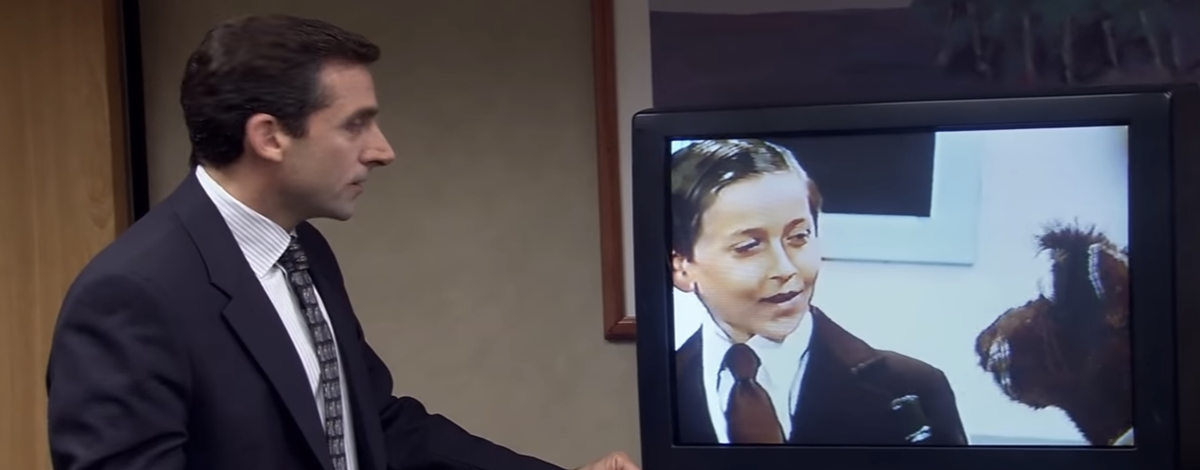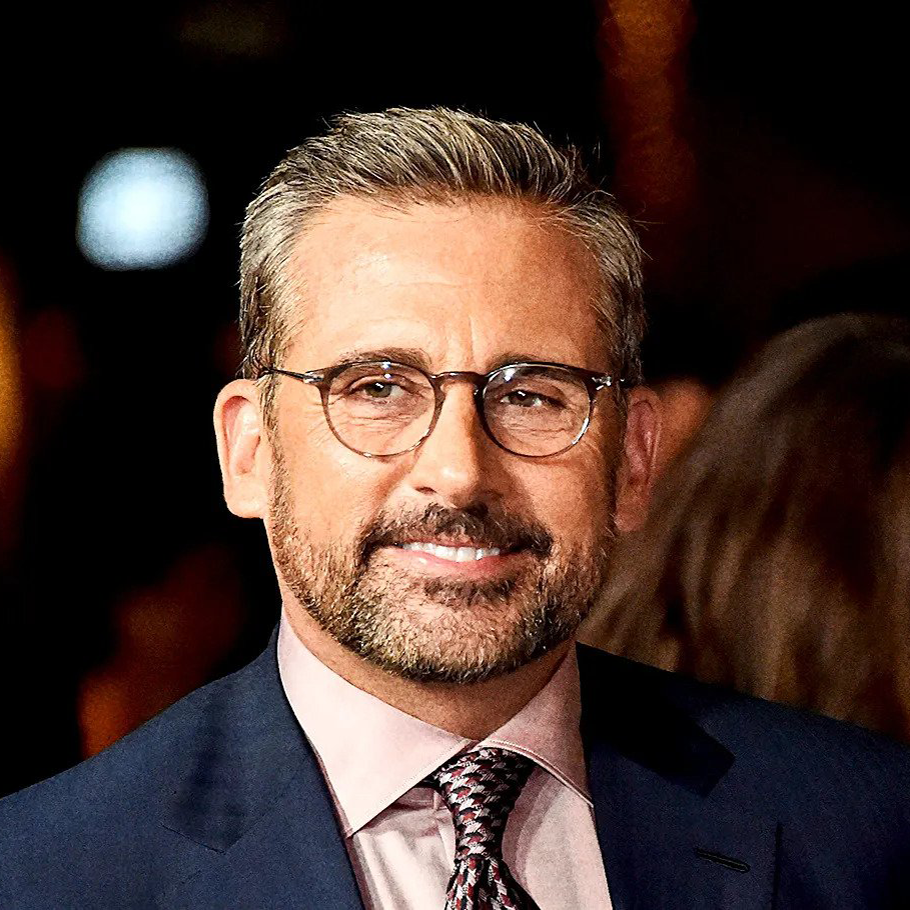Decoding Scott
Michael's character has an insatiable need for attention and approval. He constantly seeks validation from his employees and peers, often resorting to outlandish behavior and inappropriate jokes in an effort to be liked. This desire for acceptance often leads to cringe-worthy moments and social blunders, making him simultaneously endearing and exasperating. He often displays a lack of self-awareness and has a penchant for being easily influenced by others.Join us as we dive into Michael’s background and how the character was portrayal by Steve Carell (the actor) to understand why he is the way he is.
Scoot's Background
From his upbringing, we delve into the circumstances that shaped Michael's personality and led him to become the occasionally awkward yet endearing regional manager we've come to adore. Additionally, we explore how his past has impacted his relationships.

How did Michael’s past affect him as a person later in life?
Michael Scott's life story, as pieced together from various anecdotes and reminiscences shared throughout the series, provides a vivid picture of the forces that shaped him. As a child, he experienced a tumultuous family life. His parents divorced when he was just seven years old, an event that left a lasting imprint on his personality. He often speaks about this period of his life with a sense of melancholy. He also makes several references to having difficulty making friends as a child. All in all Michael group up as a pretty lonely guy, which likely contributed to a strong desire for approval and acceptance in his adult life. Examples: Michael Scott's relationship with his stepfather, Jeff, is indeed a significant part of his backstory. In the episode "Counseling" from Season 7, Michael reveals to Toby during a counseling session that he never saw Jeff as his father. This disclosure underscores his lack of a solid father figure in his life. This may have contributed to his need for approval from male figures in his life, such as his boss, David Wallace, as well as his desire to be seen as a father figure by his employees at Dunder Mifflin. Michael sought refuge in his school, where he developed an unusually close relationship with the lunch lady. In season 3's "The Merger," he revealed that he used to spend most of his time at school hanging out with her, underlining his childhood loneliness. This connection with a relatively anonymous figure in his life formed his perspective on relationships, making him see value in every person he interacts with.
Examples:
Michael Scott's relationship with his stepfather, Jeff, is indeed a significant part of his backstory. In the episode "Counseling" from Season 7, Michael reveals to Toby during a counseling session that he never saw Jeff as his father. This disclosure underscores his lack of a solid father figure in his life. This may have contributed to his need for approval from male figures in his life, such as his boss, David Wallace, as well as his desire to be seen as a father figure by his employees at Dunder Mifflin.
Michael sought refuge in his school, where he developed an unusually close relationship with the lunch lady. In season 3's "The Merger," he revealed that he used to spend most of his time at school hanging out with her, underlining his childhood loneliness. This connection with a relatively anonymous figure in his life formed his perspective on relationships, making him see value in every person he interacts with.
In season 2’s "Take Your Daughter to Work Day," he shares a TV show he made when he was a child, where he talks about wanting to have a hundred kids so that they would be his friends and never be able to leave him. This poignant moment discloses his deep-seated fear of being alone and his overwhelming longing for acceptance.
It is implied that Michael's childhood birthdays are not happy memories for him. As a result, he may have felt neglected or overlooked during these important milestones. This lack of positive experiences surrounding his birthday likely left a lasting impression on him, leading him to compensate for it in adulthood. He often craves recognition and goes out of his way to be acknowledged, particularly on his birthday. This is seen in Season 2, Episode 19. In various episodes he organizes special activities, and expects his employees to make a fuss over him. These extravagant celebrations serve as a way for him to create the recognition and validation he may have missed during his childhood. Not only that, Michael also always goes out of his way to also make sure everybody’s birthday, other than Toby, are celebrated as well, and there is a party for them. The office becomes Michael's primary source of social interaction and support. He sees his co-workers as an extended family and strives to create a family-like atmosphere within the workplace. By celebrating birthdays and organizing parties, he aims to cultivate a sense of closeness and create positive memories.
How did Michael's childhood affect his relationship with others?
Platonic Relationships
Michael's experiences of loneliness and social rejection during his childhood likely contributed to his strong desire for companionship. He craved close relationships and sought to build friendships with his colleagues, often blurring the lines between personal and professional boundaries. However, his overeager and sometimes misguided attempts at forging connections could create tension and awkwardness within his relationships.
Love Relationships
Michael has a deep-seated fear of being alone, a fear of abandonment. This fear may drive him to seek out relationships eagerly and attach himself quickly to someone in an attempt to avoid being alone. The fear of loneliness might make him hesitant to end relationships, even when they become toxic or unhealthy, as he may prioritize the comfort of having someone over the potential pain of being alone. Michael's need for validation and acceptance plays a significant role in his relationships. He often seeks affirmation and love from his partners, and this desire for validation can lead him to rush into saying "I love you" or become overly affectionate early on in a relationship. He craves reassurance and approval, and this need can cloud his judgment when it comes to setting boundaries and recognizing red flags.
The Actor's Take
Through interviews, here’s what Steve Carell had to say about Michael Scott as he shares his thoughts on the character he’s portraying.

Steve Carell
"He's a person with an enormously good, kind heart who lacked a great deal of information about the world around him.”
"I think Michael's a decent dude with a lot of heart, but based on his childhood and the things he lacked growing up, things he was deprived of, he was so hungry for acceptance."
"I don't think he had the strongest templates in the world to go by, but I think he also learned and evolved and became a better person along the way. He became more aware once he was able to start stepping outside of himself and his own little eccentricities so he could see a little bit more of the world around him."
"He was as asleep in a woke world as you could be. Michael's trying his best! There's a difference between being intolerant and being ignorant. Sometimes intolerance and ignorance go hand in hand, for sure...He just didn't… get it all the time, you know?”
"Michael put his foot in his mouth all the time, saying inappropriate things, but I don't think he ever valued one type of person over any other," Carell said. "And in that way, I think he was a very pure character. He's very dumb in terms of political correctness and being appropriate in public. But at the same time, I just don't think there was hardness in his heart towards anyone."
"Michael lives to be celebrated throughout the whole series. That's all he wants. He wants to be the center of attention, and he wants pats on the back. He wants people to think he's funny and charming.”